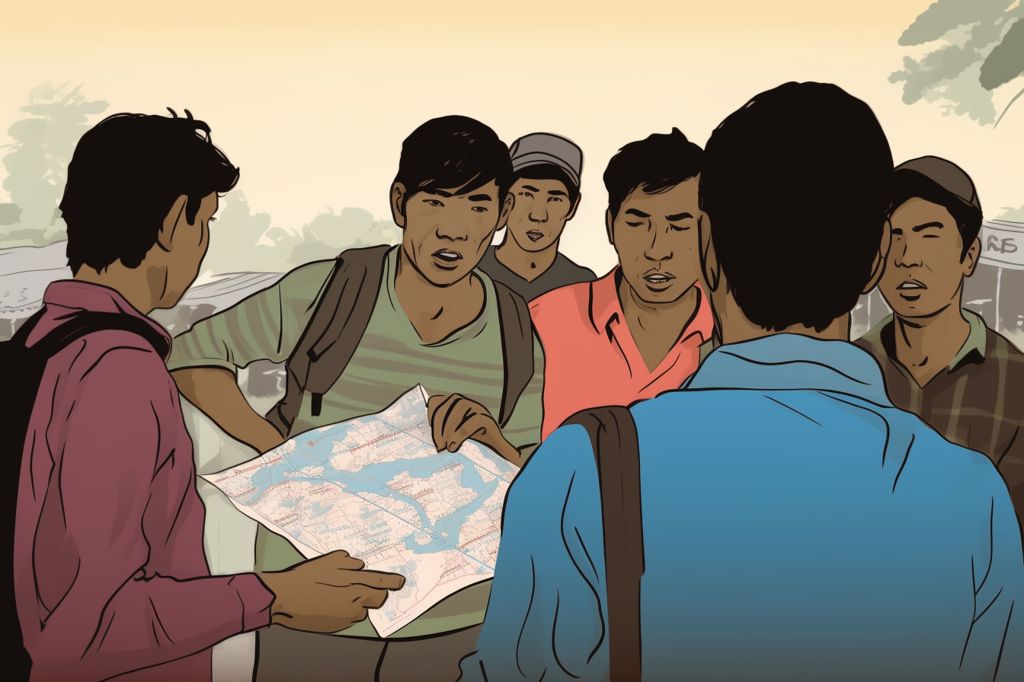Overview of the Situation
In a recent crackdown, 42 job-seekers from Myanmar were arrested after illegally crossing the border into Sangkhla Buri district in Kanchanaburi province, Thailand. The group was comprised of 27 men and 15 women, all of whom were apprehended following a tip-off about suspicious-looking individuals in the area.
The Arrest Operation
The arrest took place late on Wednesday night when soldiers, border patrol police, and immigration officers were dispatched to tambon Nong Lu in response to the tip-off. Initially, the suspects had vanished, but they were later spotted boarding a vehicle headed towards a pier at Wat Wang Wiwekaram in Wang Ka village. Upon seeing the authorities, the migrants attempted to flee into a nearby forest but were eventually caught.
Background of the Migrants
The arrested individuals revealed that they had traveled from various parts of Myanmar, including Mandalay, Bago, and Yangon. They entered Thailand via a natural crossing in Sangkhla Buri, aiming to reach their promised jobs in locations such as Bangkok, Chon Buri, Phuket, Samut Prakan, Samut Sakhon, Rayong, and even Malaysia.
Role of Job Brokers
It was discovered that the migrants had agreed to pay between 20,000 and 30,000 baht each to job brokers, who facilitated their journey. The payment was to be made upon arriving at their respective destinations.
Health Checks and Legal Proceedings
Following the arrest, the migrants underwent body temperature checks as part of COVID-19 screening measures. All of them registered normal temperatures. They were then handed over to the Sangkhla Buri police station for further legal proceedings.
Ongoing Migration from Myanmar
The situation in Kanchanaburi is not an isolated incident. The number of illegal migrants crossing into Thailand from Myanmar has increased significantly since the military coup two years ago. In 2021 alone, it was estimated that 80,000 illegal border crossers, mostly from Myanmar, were captured by authorities. However, as many as 100,000 more may have successfully entered the country and found employment in various regions, according to groups working with migrants.




